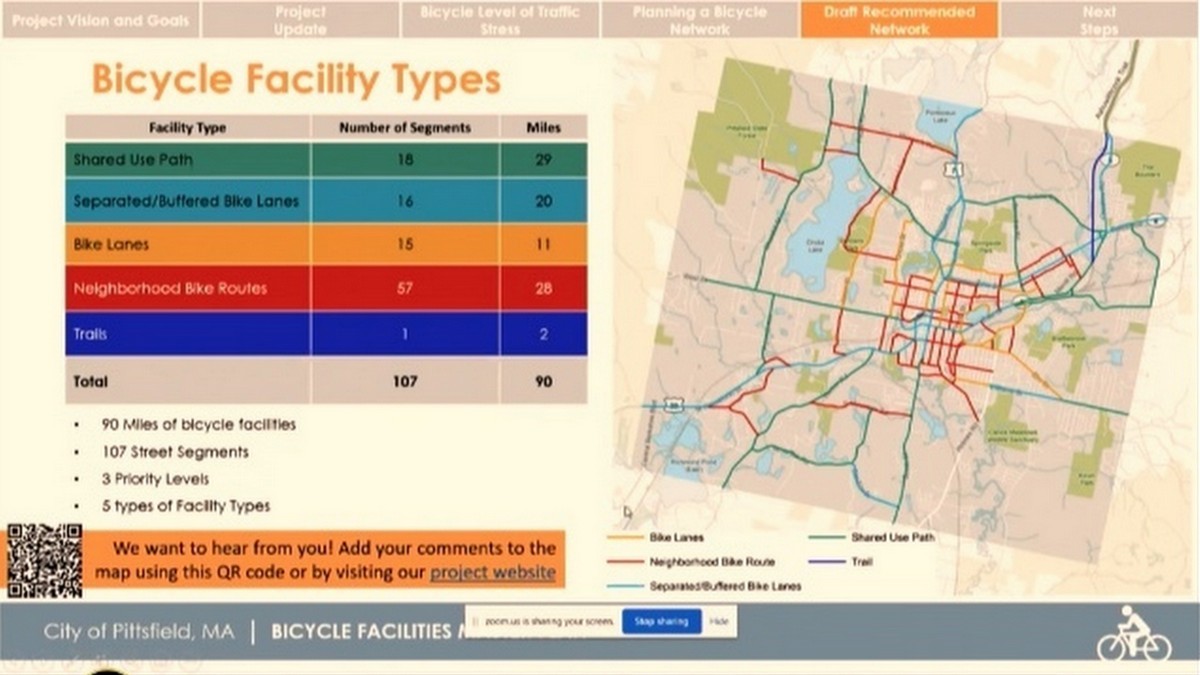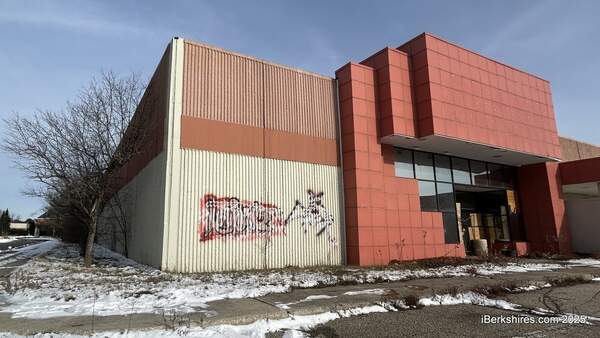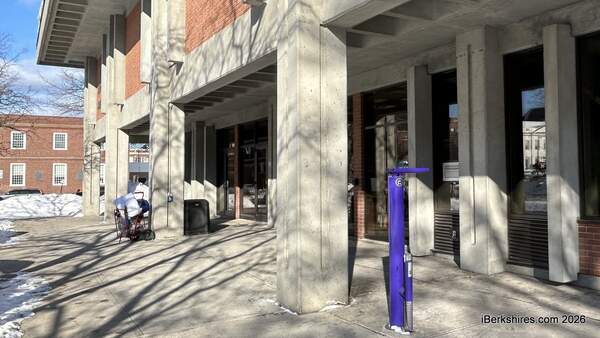
Pittsfield Bike Facilities Master Plan Will Have Final Design in May

PITTSFIELD, Mass. — The master plan for a bicycle network on 107 segments and 90 miles of Pittsfield should be completed by May.
In its second meeting, Bike Facilities Master Plan members on Wednesday gave an update on the project that will transform the city into a bike-friendly community and encourage multi-modal means of transportation.
"The idea was to create a plan for safe, comfortable, and accessible bicycle facilities in the city of Pittsfield, to serve people of all ages and abilities," project manager Aditya Inamdar said. "We were looking to develop a network for people who are currently interested but not comfortable riding in the streets because they lacked bicycle facilities. But we also wanted to create a network that connected destinations and make bicycling a viable transportation mode connecting destinations throughout the city."
The project began in August 2020 and is a joint effort between the Department of Community Development and the Department of Public Services with consultants Caitlin Mildner and Inamdar of Kittelson & Associates.
The four main goals of the project are to develop a citywide plan that is based on transportation factors, develop a network that can be built over time, develop a network with a range of bicycle facility types to fit different locations, and to think beyond the network and about which complementary facilities would make bicycling more accessible to people.
"There are those that rely on a bicycle or public transportation to get around," City Planner CJ Hoss said. "not everyone has a vehicle. And this is an opportunity to safely connect so generally every ridership level feels safe getting around the city by bike."
The master plan will utilize side and shared-use paths, buffered bike lanes, and neighborhood bike routes depending on existing traffic conditions. The planners explained that this plan is not a "one size fits all" solution and requires multiple types of facilities.
Hoss and the Kittelson & Associates team started with a data-driven analysis that includes existing conditions, data, land use, transportation methods, demographics, and levels of traffic stress (LTS) analysis. Public and stakeholder input obtained from an interactive map on the project's website was then combined with public feedback to develop a list of city corridors that can benefit from a bike facilities network.
At this point, they are gathering additional input in preparation for the master plan's completion.
"Based on the feedback we will receive after this meeting from the public, we will revise the network again to create a final network for bicycle facilities," Inamdar said. "So just kind of drilling down into the production process to kind of make it transparent as to how we're selecting these corridors."
Mildner explained that the LTS analysis is beneficial because it outlines problematic areas and divides the streets into four categories based on levels of traffic stress ranging from LTS 1 to LTS 4.
"An LTS 1 roadway is the street that most people feel comfortable on," Mildner explained. "A family will feel comfortable biking to a restaurant or biking to the park or to school on LTS 1 roads. On the opposite end of the spectrum of LTS 4, which very few bicyclists would feel comfortable riding on and we call these riders highly confident."
Lowest-stress streets reportedly cover 60 percent of Pittsfield, but the problem lies within gaps in the network that prevent riders from traveling farther distances, she explained. Higher stress streets will be the focal point of the project.
"Our goal is to fill in the gaps fill in the network and just lower the overall stress and make it easier to get to get around the city," Mildner said.
Additionally, downtown and urban streets will be prioritized in the bike network layout because they boast more destinations, population density, and a greater number of residents without vehicles.
Commissioner of Public Services and Utilities Ricardo Morales said the group is learning from a winter pilot program that reworked the layout of North Street and sparked a great deal of public concern because of lack of signage and sudden lane shifts.
"We are essentially taking lessons learned through the winter release from the installation of the pilot program on North Street where we included the bicycle facilities on the first segment between Park Square and Fenn Street, and we had some other segments along the corridor," he said. "And we heard some concerns, we have met with actually Kittelson, and we are applying for a second round of the project grant funding to address these concerns."
Tags: bicycling, master plan, transportation,















